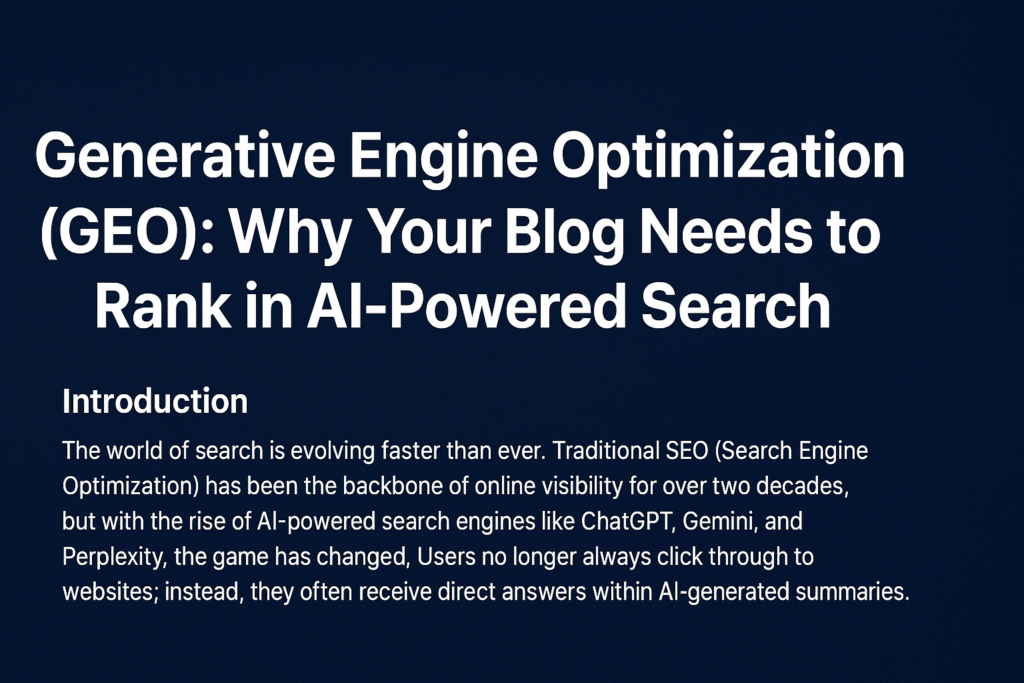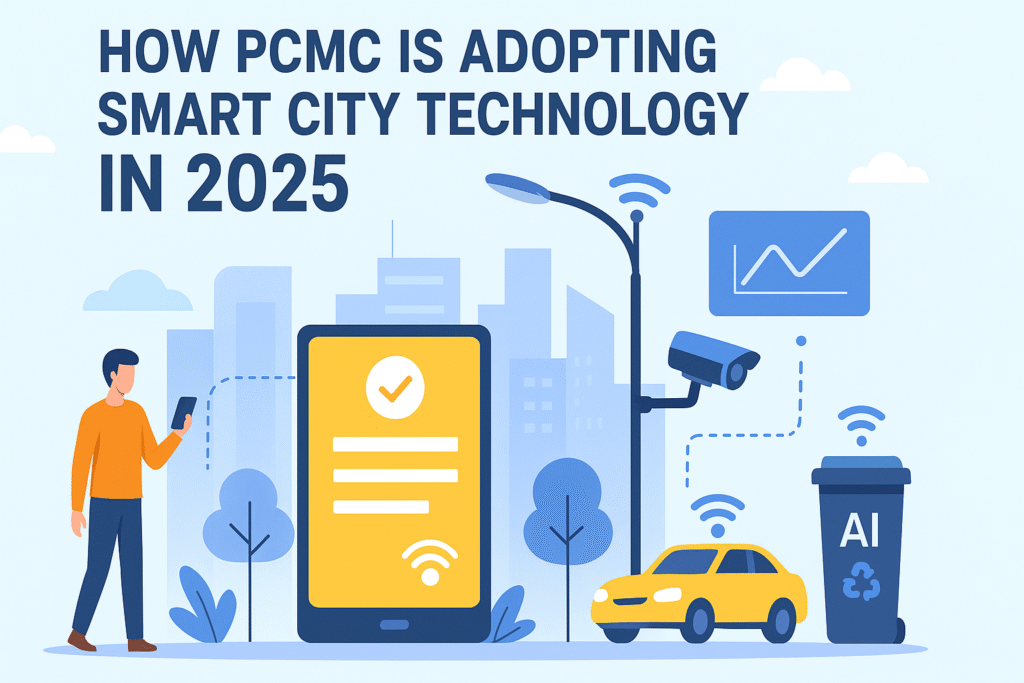Introduction
The world of search is evolving faster than ever. Traditional SEO (Search Engine Optimization) has been the backbone of online visibility for over two decades, but with the rise of AI-powered search engines like ChatGPT, Gemini, and Perplexity, the game has changed. Users no longer always click through to websites; instead, they often receive direct answers within AI-generated summaries.
This shift has given birth to a new concept: Generative Engine Optimization (GEO). GEO is the process of optimizing your blog and content so that AI tools not only find your website but also use your information when generating responses for users. If you want your blog to remain visible in this AI-driven era, understanding and implementing GEO is essential.
Why GEO is More Important Than Ever
1. AI is Reshaping Search Behavior
In the past, people searched for keywords and clicked multiple links to find answers. Now, with AI assistants, users simply ask a question and receive a direct, conversational answer. This means ranking on Google alone isn’t enough—you need your blog content to be referenced by AI systems.
2. AI Citations Build Authority
If an AI chatbot or search tool mentions your blog as a source, your credibility instantly increases. Even if the user doesn’t click through, the brand recognition creates trust. Over time, repeated mentions establish your blog as an authority in your niche.
3. Early Adopters Have the Advantage
Just like early SEO adopters dominated Google’s first page, GEO pioneers will dominate AI-powered answers. Since this field is still developing, bloggers and businesses that implement GEO now can get ahead of competitors before the market becomes saturated.
Core GEO Strategies for Bloggers
1. Write for Conversational Queries
AI tools work by predicting answers to natural, human-like questions. Instead of focusing only on short keywords like “SEO tips”, write content that matches queries such as:
- “What are the best SEO tips for beginners in 2025?”
- “How does generative engine optimization work?”
- “Why is GEO better than traditional SEO?”
These conversational, long-tail queries increase the chance of your blog being featured in AI results.
2. Structure Content for AI Understanding
AI engines prefer structured, clear, and scannable content. To achieve this:
- Use H2 and H3 headings for each subtopic.
- Add bullet points and numbered lists where possible.
- Create FAQ sections at the end of posts.
- Write in a way that provides direct answers early in the section.
- Use schema markup (FAQ, How-To, Article) to help AI understand your content better.
3. Build Authority and Trustworthiness
AI search engines prioritize content that demonstrates expertise and credibility. To strengthen authority:
- Include data, research, and statistics in your blogs.
- Add an author bio that highlights your expertise.
- Follow E-E-A-T principles (Experience, Expertise, Authoritativeness, Trustworthiness).
- Keep content updated regularly, since AI often prefers fresh, relevant information.
4. Optimize Your Website Technically
Technical SEO is just as important in GEO. Make sure to:
- Use server-side rendering, since AI crawlers struggle with JavaScript-heavy sites.
- Improve website speed and ensure mobile optimization.
- Guide AI crawlers using an llms.txt file (like robots.txt but for AI).
- Avoid blocking AI bots in your site settings.
5. Leverage Community & User-Generated Content
AI systems often scrape and learn from community discussions. To increase visibility:
- Share your blogs on forums, Q&A sites, and social platforms.
- Encourage comments, reviews, and discussions on your blog.
- Answer common questions on platforms like Reddit and Quora—these often appear in AI summaries.
6. Track GEO Performance
To measure your success in GEO, focus on:
- How often your blog content is mentioned in AI-generated answers.
- Growth in brand search volume over time.
- AI-related impressions and engagement metrics.
- Referral traffic from AI-based tools if tracked by analytics.
Conclusion
Generative Engine Optimization (GEO) is not just a trend—it’s the future of digital search visibility. As AI-powered search continues to dominate, traditional SEO alone will not be enough. Bloggers must adapt by creating structured, conversational, authoritative, and technically optimized content that AI tools can easily reference.
By embracing GEO strategies now, you ensure that your blog doesn’t just survive but thrives in the next phase of search evolution. The earlier you start, the greater your advantage in ranking inside AI-powered answers where users are already spending their attention.



